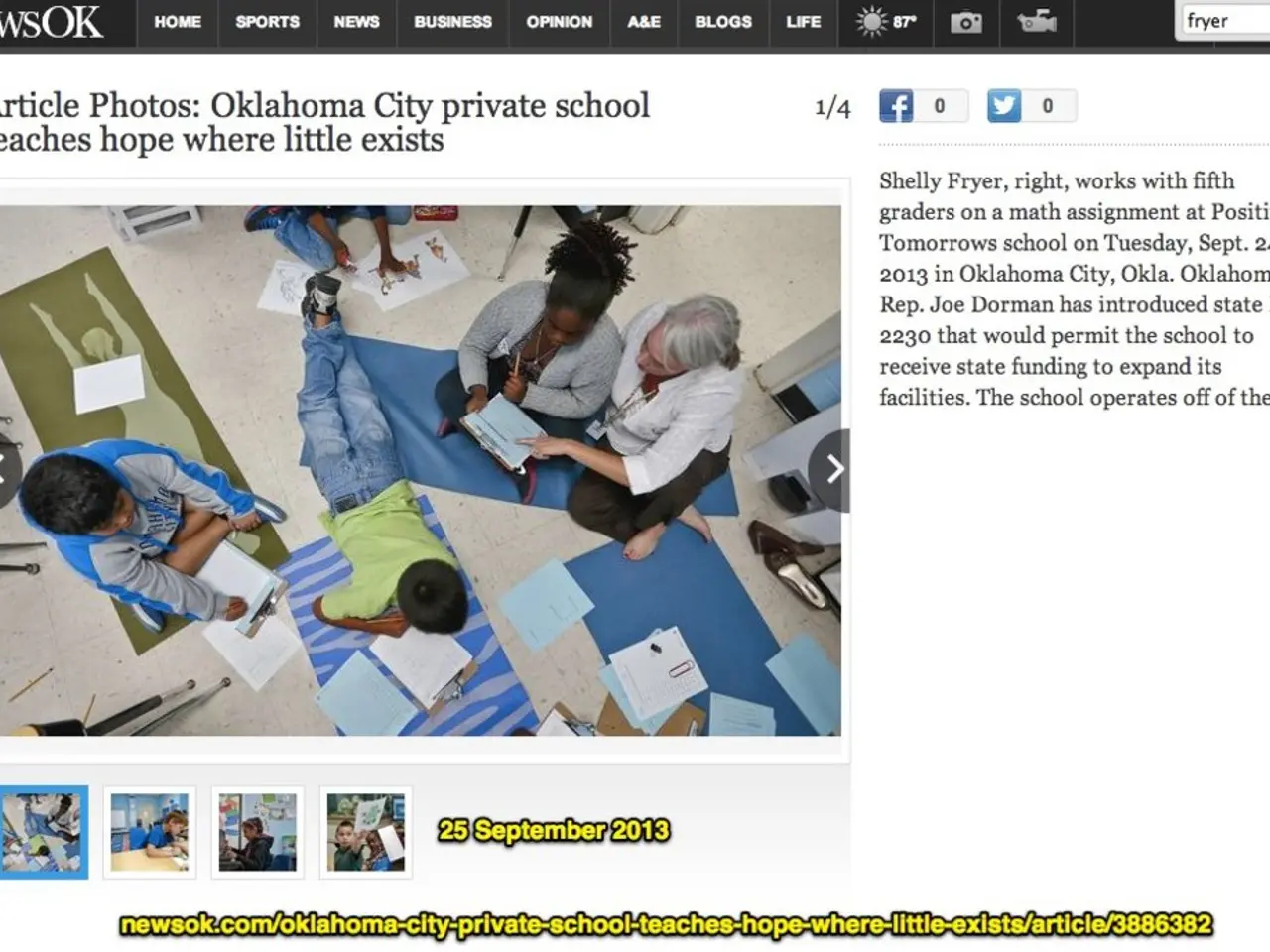Controversy Arises over Proposing a Ban on Social Media for Kids Below 14 Years of Age, Due to Its Complex Nature
In the digital age, the question of social media usage for children has become a topic of much debate. From France to Australia, and across many countries, there is a growing call for age-based restrictions on social media platforms, particularly for those under 14 or 16 years old.
One parent shared their stance, stating, "I have two 13-year-olds and we have explained to them in great detail why they are not allowed to use social media. They. Do. Not. Need. It." This sentiment is echoed by many, including French President Emmanuel Macron, who announced plans to ban social media for individuals under the age of 15 in France.
The rationale behind this push for restrictions is multifaceted. Protection from exposure to harmful content such as child sexual abuse material, extremist views, violent content, and self-harm encouragement is a primary concern [1][2]. There are also worries about the mental health impacts on children and youth from social media use [3][4]. The desire to limit distractions and promote social skills and attention spans is another argument, as seen in movements to ban phones in schools [5].
However, the debate is not without its complexities. Some users are concerned about the requirement of personally identifying information for age verification, and the potential risks this could pose to privacy. Others question the effectiveness of such bans, fearing that they may push young people to less regulated, potentially more harmful corners of the internet [1].
The importance of social media as a platform for marginalized youth to find community and express themselves, as in the case of YouTube, is another point of contention. Some argue that bans are simplistic and detract from the difficult but necessary work of regulating tech companies and improving online safety overall [2].
In the United States, a federal judge in Florida recently blocked the enforcement of a state law that banned social media accounts for children under 14. The judge stated that the law was likely unconstitutional. This decision highlights the lack of a global legal consensus or uniform ban on social media use for individuals under 14 years old.
The policy challenge is seen as more complex than enforcing categorical age restrictions [1][2][3]. Online age verification is a current topic, with the United Kingdom implementing the Online Safety Act. However, concerns about enforcement and unintended consequences remain, particularly in the case of Australia's ban on social media use for under-16s starting December 2025 under its Online Safety Act.
As the debate continues, it is clear that protecting the well-being of young users is a priority for many. A 30-country Ipsos study from 2025 found that on average 71% of respondents support banning children under 14 from social media both in and out of school, with similar sentiment (70%) in Great Britain [3]. Yet, the balance between protecting youth mental health and safety and concerns over freedom, access, and the effectiveness and consequences of blunt bans is a delicate one.
In the words of a Reddit user, "Yes, I support banning social media for kids under 14 - and not in a 'boomer killjoy' way, but a protect-your-brain-before-it's-fried kinda way." As the conversation around age-based social media restrictions continues, it is crucial that all perspectives are considered, and that solutions are found that prioritize the safety and well-being of young users while respecting their digital rights.
References:
- The Verge
- The Guardian
- Ipsos
- The Conversation
- Vermont Public Radio
Read also:
- Urban Tales: Winged Hedgehogs and Gridiron Mascots Highlight Our Legendary Series on TGC+!
- Amidst India's escalating climate crisis, transgender individuals continue to persevere
- Love, Work, and Friendship Harmonies between Aries Signs
- In New York, a previously vegan restaurant has resumed offering meat in its menu.







